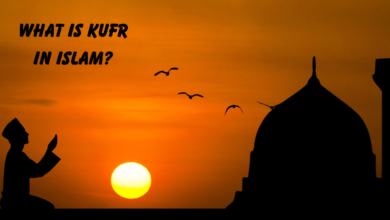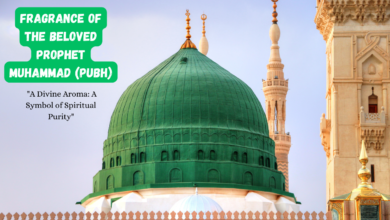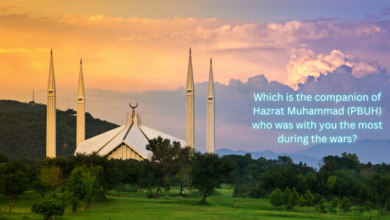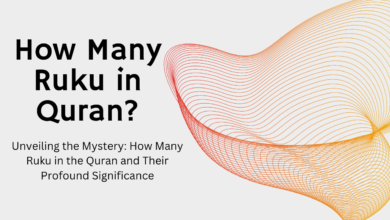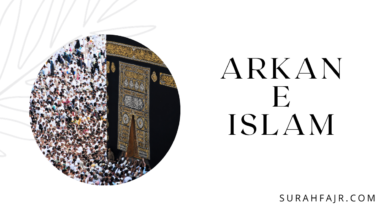The Role of Poetry in Islamic Culture
The Multifaceted Influence of Poetry in Islamic Culture
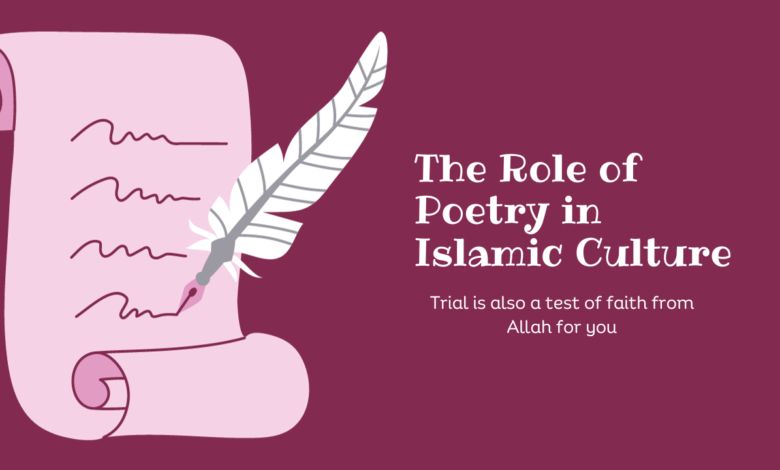
The Role of Poetry in Islamic Culture
Poetry holds a significant place in Islamic culture as it has been used to convey religious, moral, and cultural values for centuries.
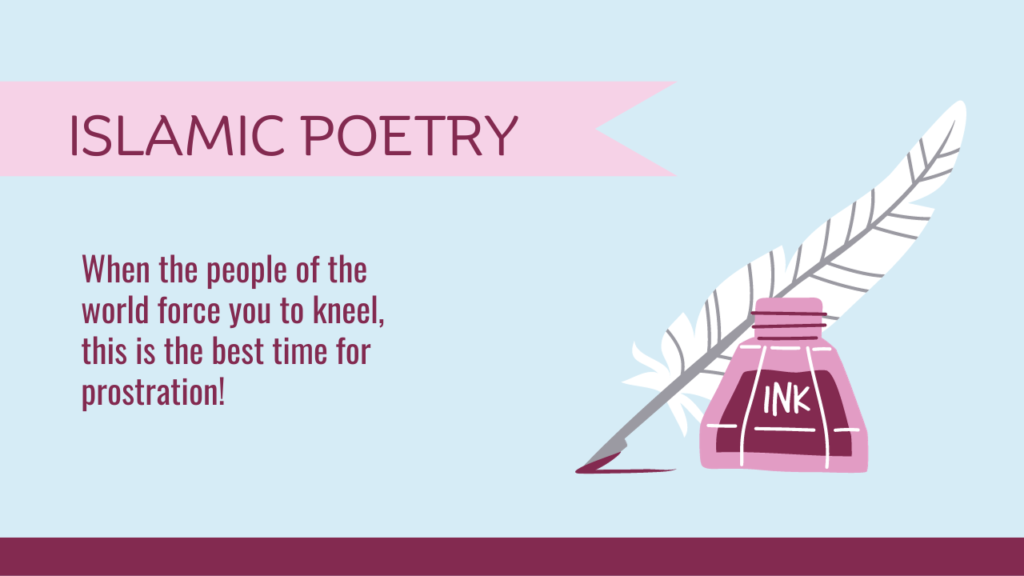
The Role of Poetry in Islamic Culture
Poetry has played a significant role in Islamic culture throughout its history, shaping both the literary and spiritual aspects of the Muslim world. In the rich tapestry of Islamic civilization, poetry has been a means of expressing profound emotions, conveying religious teachings, and preserving the cultural heritage of the Muslim people. This article delves into the multifaceted role of poetry in Islamic culture, highlighting its importance in various aspects of life.
- Expression of Spiritual Devotion:
- Poetry has long been used as a medium to express profound spiritual devotion and love for God (Allah) in Islam. Sufi poetry, in particular, is renowned for its exploration of the mystical and spiritual dimensions of Islam. Poets like Rumi, Hafiz, and Attar have written verses that delve deep into the soul’s connection with the divine. Their works emphasize the idea of surrendering to God’s will and finding a deeper understanding of the self through poetry.
- Preservation of Knowledge and Tradition:
- Poetry has been instrumental in preserving Islamic knowledge and cultural traditions. The pre-Islamic period, known as the Jahiliyyah, relied heavily on oral tradition, and much of the knowledge of that era was transmitted through poetry. After the advent of Islam, the Quran itself is often described as the most sublime form of poetry, and its preservation in this poetic form has been central to Islamic culture. Additionally, Islamic history, ethics, and moral teachings have been passed down through epic poems and historical narratives, ensuring that the collective memory of the Muslim community remains intact.
- Artistic Expression and Aesthetics:
- Islamic poetry has a rich tradition of artistic expression and aesthetics. Arabic and Persian poetry, in particular, are celebrated for their eloquence, intricate rhyme schemes, and metaphoric language. The beauty of poetry is not only in its content but also in its form. Islamic poets have taken pride in their ability to craft verses that are not only spiritually enlightening but also aesthetically pleasing.
- Social and Political Commentary:
- Poetry has often been used as a medium for social and political commentary in the Islamic world. Poets have addressed issues of justice, tyranny, and oppression through their verses. For example, during the Islamic Golden Age, poets like Abu al-Ala al-Ma’arri critiqued the societal norms and political injustices of their time. This tradition of speaking truth to power through poetry continues to this day.
- Cultural Identity and Unity:
- Poetry has played a pivotal role in forging and preserving the cultural identity of different Islamic regions and communities. Different cultures within the Islamic world have developed their unique poetic traditions, such as Urdu poetry in South Asia and Andalusian poetry in Spain. These poetic traditions have served as markers of cultural identity and have contributed to the rich diversity within the broader Islamic civilization.
- Education and Moral Guidance:
- In many Islamic societies, poetry has been used as a tool for education and moral guidance. Through the recitation of poems, especially those containing ethical lessons, children and adults alike have been imparted with moral values, etiquette, and wisdom.
- Emotion and Expression:
- Islamic poetry has also served as a medium for expressing the full range of human emotions. From love and longing to grief and despair, poets have explored the depths of human experience, offering solace and understanding to their readers.
Also Check
- The Role of Prayer in a Muslim’s Life
- Why is music Haram in Islam?
- What does all hallows eve mean?
- What is Ummah in Islam?
- Why do Muslims cover their face?
Conclusion
In conclusion, the role of poetry in Islamic culture is multifaceted and deeply ingrained. It has been a means of expressing spiritual devotion, preserving knowledge and tradition, providing social and political commentary, forging cultural identity, and offering education and moral guidance. Poetry continues to be a vibrant and essential aspect of Islamic culture, reflecting the beauty and complexity of the Muslim world’s history and heritage. It is a testament to the enduring power of words to inspire, enlighten, and connect people across time and space.
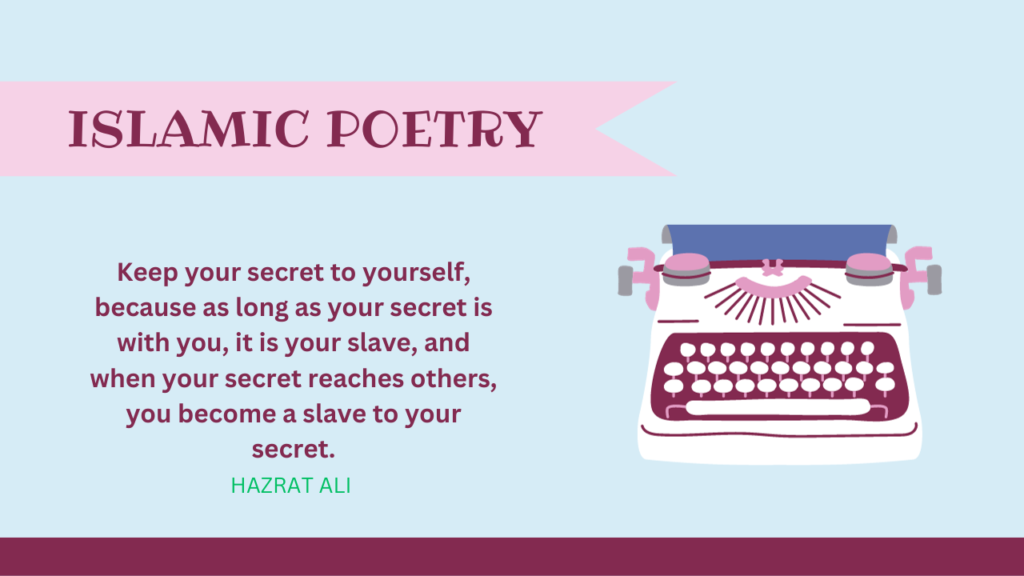
(FAQs) about the role of poetry in Islamic culture:
What is the significance of poetry in Islamic culture?
Poetry holds a significant place in Islamic culture as it has been used to convey religious, moral, and cultural values for centuries.
How did poetry originate in Islamic culture?
Poetry in Islamic culture has its roots in the pre-Islamic era, with poets known as “Jahiliyya poets” who composed poems about various aspects of life. Islamic poetry emerged with the advent of Islam and the Quranic revelation.
What role does poetry play in expressing Islamic spirituality?
Poetry in Islamic culture is often used to express spiritual and devotional themes, such as love for God (Allah), the Prophet Muhammad, and the beauty of the Quranic verses.
Are there famous Islamic poets in history?
Yes, there are many renowned Islamic poets, such as Rumi, Hafez, Ibn Arabi, and Omar Khayyam, who have made significant contributions to Islamic poetry.
How does Sufism relate to poetry in Islamic culture?
Sufism, the mystical branch of Islam, has a deep connection with poetry. Sufi poets often use poetry to express their spiritual experiences, seeking union with the Divine through their verses.
Can you explain the concept of “Qasida” in Islamic poetry?
A Qasida is a traditional Arabic and Islamic poetic form used to praise leaders, express love, or celebrate significant events. It often has a complex structure and is known for its eloquent language.
How has modernity influenced Islamic poetry?
Modernity has brought changes to Islamic poetry by introducing new themes and styles, often addressing contemporary issues, social justice, and political concerns.
Is there a relationship between calligraphy and Islamic poetry?
Yes, calligraphy and poetry are closely linked in Islamic culture. Many beautiful verses from the Quran and famous poems are often rendered in calligraphic art to emphasize their beauty and significance.
Can non-Muslims appreciate and engage with Islamic poetry?
Absolutely, Islamic poetry transcends religious boundaries and can be appreciated by people of all backgrounds. It offers a glimpse into the rich cultural and spiritual heritage of the Islamic world.
How can one explore and learn more about Islamic poetry?
To explore Islamic poetry, you can read the works of famous poets, study the Quranic verses, and delve into the rich literary traditions of different Islamic cultures. Many books and online resources are available to aid in this exploration.
